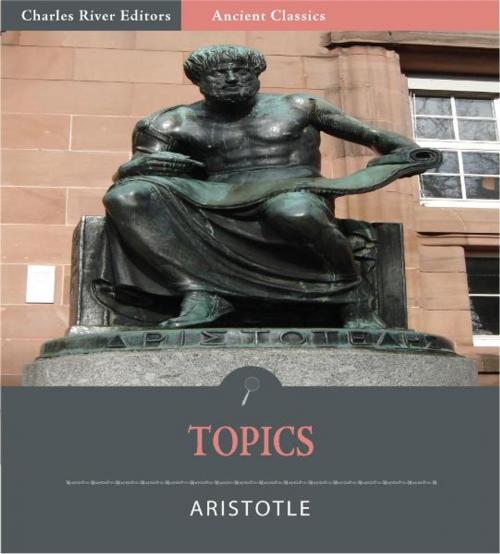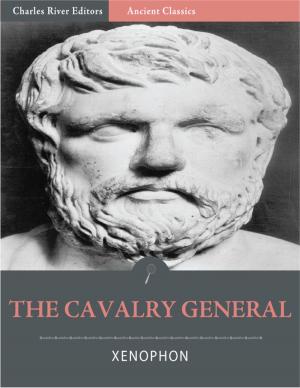Topics (Illustrated Edition)
Nonfiction, Religion & Spirituality, Philosophy, Logic, Ancient, History, Ancient History, Greece| Author: | Aristotle | ISBN: | 9781619821149 |
| Publisher: | Charles River Editors | Publication: | January 16, 2012 |
| Imprint: | Language: | English |
| Author: | Aristotle |
| ISBN: | 9781619821149 |
| Publisher: | Charles River Editors |
| Publication: | January 16, 2012 |
| Imprint: | |
| Language: | English |
Along with Plato and Socrates, Aristotle (384-322 B.C.) is one of the triumvirate of philosophers responsible for the establishment of Western philosophy as it exists today. Socrates, Plato and Aristotle were among the first to refine philosophical thought, and Socrates is credited with devising the Socratic Method as a way to argue and debate points rationally. The Ancient Greek philosophers further stressed the importance of virtue and stoicism, advocating the improvement of ones self through constant learning and knowledge. These teachings and practices formed the foundation for philosophy and psychology as fields of study. In Topics, part of Aristotle's six-work Organon, Aristotle discusses the art of dialectic, or the discovery of arguments in which propositions are based on common beliefs. Aristotle's "topics" were places where these beliefs could be discovered. This edition of Aristotles Topics is specially formatted with a Table of Contents and is illustrated with pictures of the famous philosopher.
Along with Plato and Socrates, Aristotle (384-322 B.C.) is one of the triumvirate of philosophers responsible for the establishment of Western philosophy as it exists today. Socrates, Plato and Aristotle were among the first to refine philosophical thought, and Socrates is credited with devising the Socratic Method as a way to argue and debate points rationally. The Ancient Greek philosophers further stressed the importance of virtue and stoicism, advocating the improvement of ones self through constant learning and knowledge. These teachings and practices formed the foundation for philosophy and psychology as fields of study. In Topics, part of Aristotle's six-work Organon, Aristotle discusses the art of dialectic, or the discovery of arguments in which propositions are based on common beliefs. Aristotle's "topics" were places where these beliefs could be discovered. This edition of Aristotles Topics is specially formatted with a Table of Contents and is illustrated with pictures of the famous philosopher.















